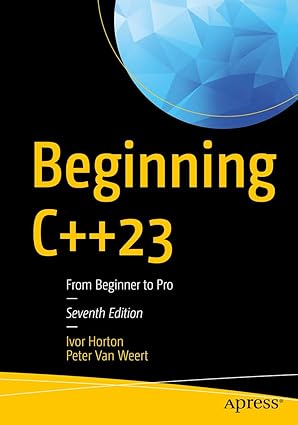A multi-paradigm programming language allows programmers to choose a specific single approach or mix parts of different programming paradigms. The power of C++ is such that it can be used to implement any paradigm. It supports procedural and class based object oriented programming techniques as well as there is functional programming support in the modern standard library versions. The free-form nature of C++ can also be used to write obfuscated C++ which in one context can be seen as artful control over the language.
The choice of a programming paradigm is strongly influenced by the supporting programming language facilities. C++ supports procedural programming (procedures, functions, sub-routines or methods), statically typed and type checking, object oriented programming (objects, classes, encapsulation, inheritance and polymorphism) and generic programming.
In this article we have listed few talks, articles and books about Multiparadigm Programming in Standard C++ .
Multiparadigm Programming in Standard C++

Multi-paradigm programming is programming applying different styles of programming, such as object-oriented programming and generic programming, where they are most appropriate. This talk presents simple example of individual styles in ISO Standard C++ and examples where these styles are used in combination to produce cleaner, more maintainable code than could have been done using a single style only.
 Multiparadigm Programming in Standard C++
Multiparadigm Programming in Standard C++
» Bjarne Stroustrup AT&T Labs – Research, http://www.research.com/~bs
Speaking C++ as a Native
Multi-paradigm programming is programming applying different styles of programming, such as object-oriented programming and generic programming, where they are most appropriate. This talk presents simple example of individual styles in ISO Standard C++ and examples where these styles are used in combination to produce cleaner, more maintainable code than could have been done using a single style only. I’ll also make a few remarks about the likely directions for the C++0x ISO standard effort.
 Speaking C++ as a Native
Speaking C++ as a Native
» Bjarne Stroustrup, Texas A&M University (and AT&T Labs – Research)
Multi-Paradigm Design for C++
Multi-Paradigm Design for C++ offers insight into an analysis and design process that takes advantage of C++’s multiple paradigm capability. It uses understandable notation and readable explanations to help all C++ programmers – not just system architects and designers – combine multiple paradigms in their application development for more effective, efficient, portable, robust, and reusable software.
This book provides readers with an informal, pragmatic approach to software development. It was well worth studying and has proved enlightening. This is a good book that should be read by intermediate to advanced C++ developers.
 Multi-Paradigm Design for C++ 1st Edition
Multi-Paradigm Design for C++ 1st Edition
» by James O. Coplien, ISBN-13: 978-0201824674
Multiparadigm Design and Implementation in C++
C++ is a programming language that supports multiple paradigms: classes, overloaded functions, templates, modules, procedural programming and more. Despite the language’s flexibility and richness, however, there has previously been little effort to create a design method to support multiple paradigms within a single application. This tutorial explores a coherent framework for multi-paradigm design, offering an advanced set of design practices that form the foundation for a formal multi-paradigm design method.
 Multiparadigm Design and Implementation in C++
Multiparadigm Design and Implementation in C++
» Published in: Technology of Object-Oriented Languages and Systems, 1999, DOI: 10.1109/TOOLS.1999.779097
Multi-Paradigm Programming using C++
Aimed mainly at students, this self-contained reference book on C++ is of superb educational value. Starting from scratch, Vermeir explains the idea of address, value and type in C++ before quickly moving on to cover the more important aspects of the language such as classes, templates, generic programming and inheritance. He includes recent developments in C++, such as STL and the iostream library.

Kickstart your coding journey with Beginning C++23 – the ultimate guide to mastering the latest in modern C++ programming!
View on Amazon
 Multi-Paradigm Programming using C++
Multi-Paradigm Programming using C++
» by Dirk Vermeir, ISBN-13: 978-1852334833









